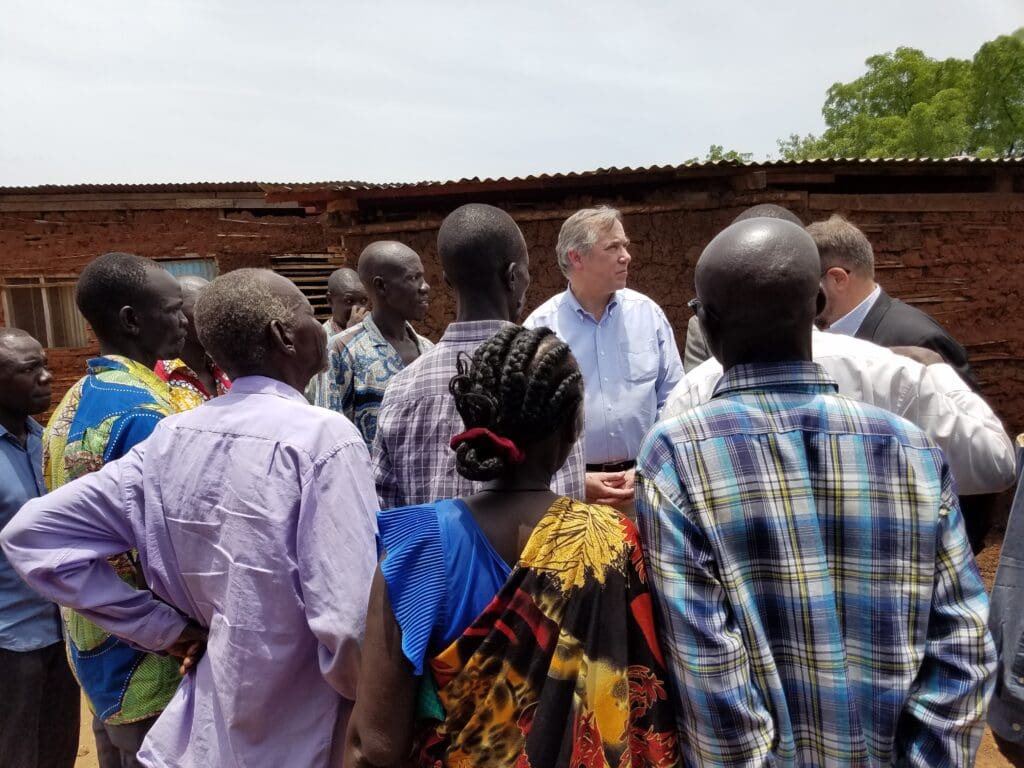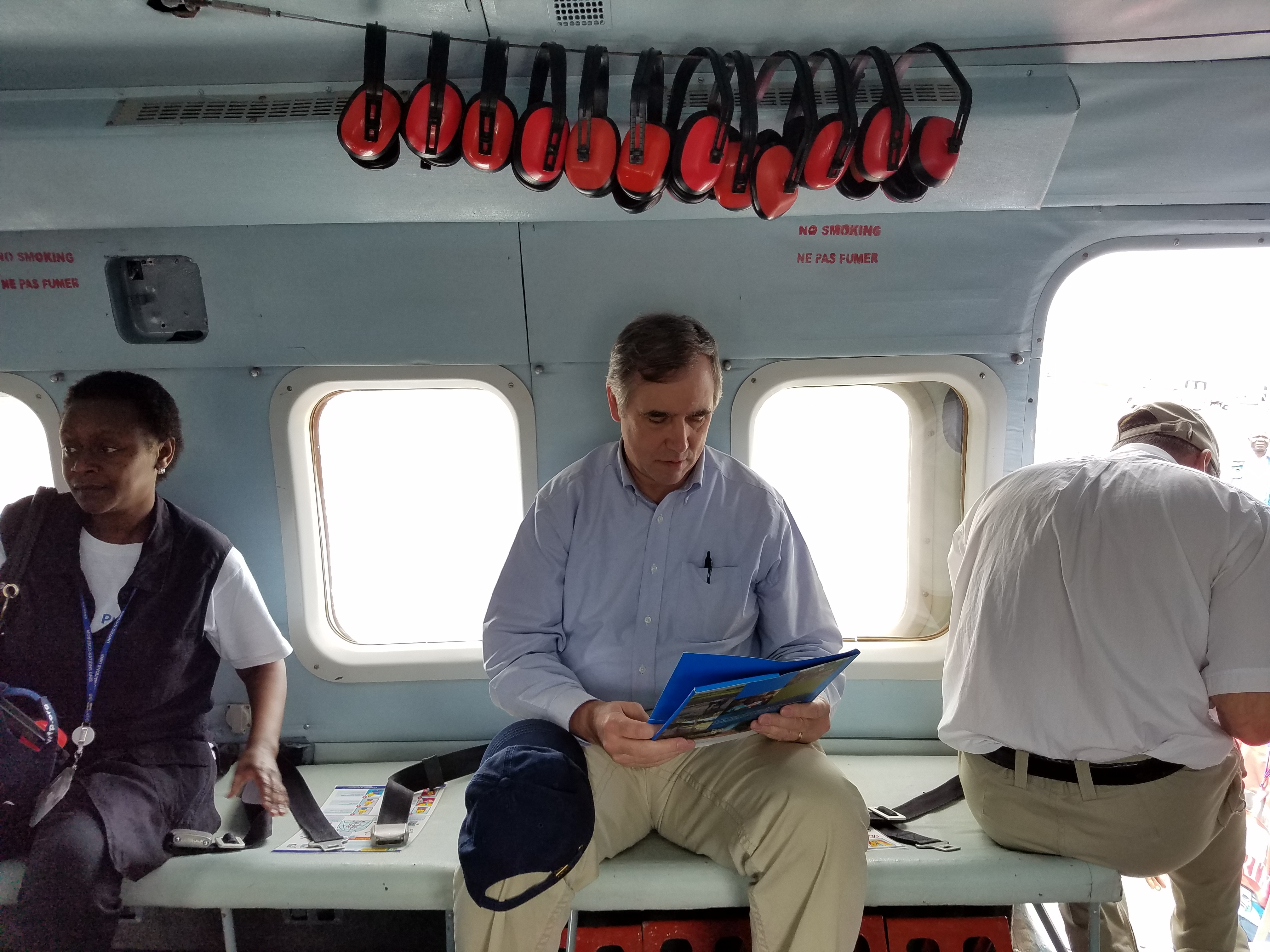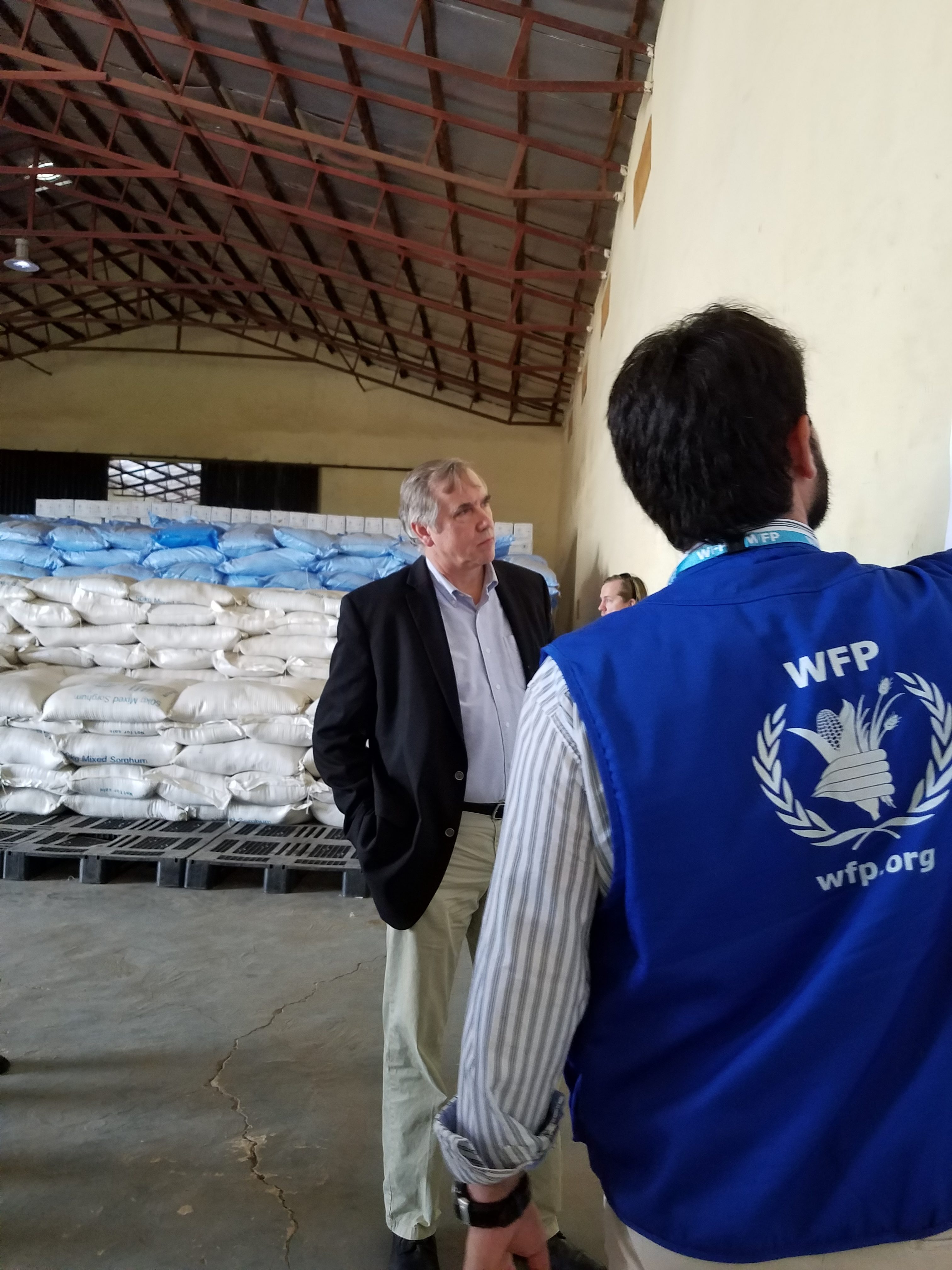
How America Leads by Fighting Famine and Promoting Peace: Senator Jeff Merkley
When there are so many problems here at home, why do you care about fighting global hunger? That’s the question we recently posted to Senator Jeff Merkley – who has dedicated his career to feeding hungry people across the world.
Senator Jeff Merkley has represented Oregon in the United States Senate since 2009. As Ranking Member of the Agriculture Appropriations Subcommittee and Senate Foreign Relations Subcommittee focusing on international development and multilateral organizations, he’s been a strong supporter of the United Nations World Food Programme (WFP) and U.S. global food assistance programs.
WFP USA: Last year, you had the opportunity to visit two countries on the brink of the famine—Somalia and South Sudan. What did you see and learn on that trip?
JM: We have the tools today to prevent the worst forms of hunger, and if we keep investing in these successful programs, we have the power to make famine a thing of the past. Throughout my visit to South Sudan and Somalia, I saw firsthand that U.S.-funded food assistance makes a world of difference in the lives of countless children and families and helps build relationships and goodwill between the United States and the global community. It was powerful to see the impacts of U.S.-supported efforts by USAID, the World Food Programme and other partners that provide lifesaving food supplements. I’ll never forget the families I met at the refugee and internally displaced persons camps I visited—families whose lives were deeply affected by our support of these programs.
WFP USA: You’ve hosted Senate Foreign Relations Committee hearings—together with Republican Senator Todd Young—on the link between food insecurity and global instability. Why is food security so critical to peace and stability?
JM: It’s not difficult to see how food insecurity and famine can help fuel global instability. The political effects of food shortages can range from simple protests to food price riots to—in the worst cases—recruitment into violent movements. As the Department of Defense, The State Department and USAID continue to focus more on the root causes of instability, migration and conflict, food insecurity must be a part of that conversation. However, food insecurity’s effects manifest, and we know that one of the best investments we can make in peace and security is to feed someone who cannot feed themselves or their families.

WFP USA: Imagine you’re hosting a town hall meeting in Oregon and you’re met with skepticism about U.S. global food aid programs. What would you say to that person?
JM: The belief that we all are created equal is the foundation for the spirit of America—and that means we need to treat others the way we want to be treated. Children are among the most vulnerable to the impacts of hunger, and today’s alarming hunger trends could shape today’s children in a way that will cause instability and economic stagnation for decades to come—tragedies that will reverberate around the world.
Food aid programs are not only the moral solution to worsening hunger trends, they also improve our own national security and help safeguard the global economy. Conflict and instability do not know borders, and food aid programs are a cost-effective investment in humanitarian assistance, our economy and our safety.
WFP USA: Let’s look specifically at the Food for Peace Program. This year marks its 65th anniversary. What role has this program played in addressing global hunger?
JM: Since 1954, the Food for Peace Program has reached 4 billion people through a balance of cash and commodity-based assistance. Throughout its 65-year tenure, the program has always kept the American farmer at its core—a great point of pride to many of the producers across Oregon who know they are making a difference by supplying food for the program. Americans should know that our farmers are leading the world not just in quantity and quality, but also in extending assistance to families around the globe.
WFP USA: Given Oregon’s location on the Pacific Coast, your state plays a unique role in American food aid programs. Can you talk about what programs like Food for Peace mean to Oregonians—farmers and shippers?
JM: Food for Peace programs are very meaningful to farmers across our state. So far this year, farms in Oregon have already supplied nearly 130,000 tons of soft white wheat—of which the Portland Port has loaded 74,600 tons—and 860 tons of lentils.
Last year alone, Oregon supplied 314,000 tons of food for these programs, which was loaded and shipped from the Port of Portland. Seven of those ships were carrying aid for Yemen, the site of one of the worst humanitarian disasters in recorded history. That assistance was powerfully needed in a moment when 18 million Yemenis were living on the brink of starvation.
The numbers speak for themselves—food assistance programs not only save lives, they benefit farmers and shippers and contribute to our local economy.

WFP USA: Why do you think it’s important that America continues to lead on issues related global food security?
JM: America is strongest when we lead the world. Our power doesn’t come primarily from our military, it comes from our example and from being a beacon to people around the world who aspire to live by our values. International food assistance and agricultural development reflect the very best of who we are as a nation.
Over a third of all global support to WFP comes from the U.S. Our strong support for the world’s leading humanitarian organization fighting hunger is a testimony to this country’s commitment to tackling some of the world’s worst humanitarian crises—a commitment that also informs our support for international non-governmental organizations like Mercy Corps, which is based in Oregon.
I’m one of many American leaders who have joined in the bipartisan fight to address food insecurity over the course of our nation’s history, and I look forward to continuing to strengthen American support of these critical programs.




